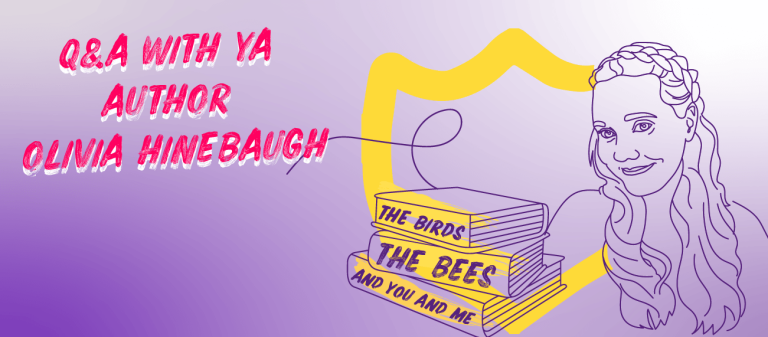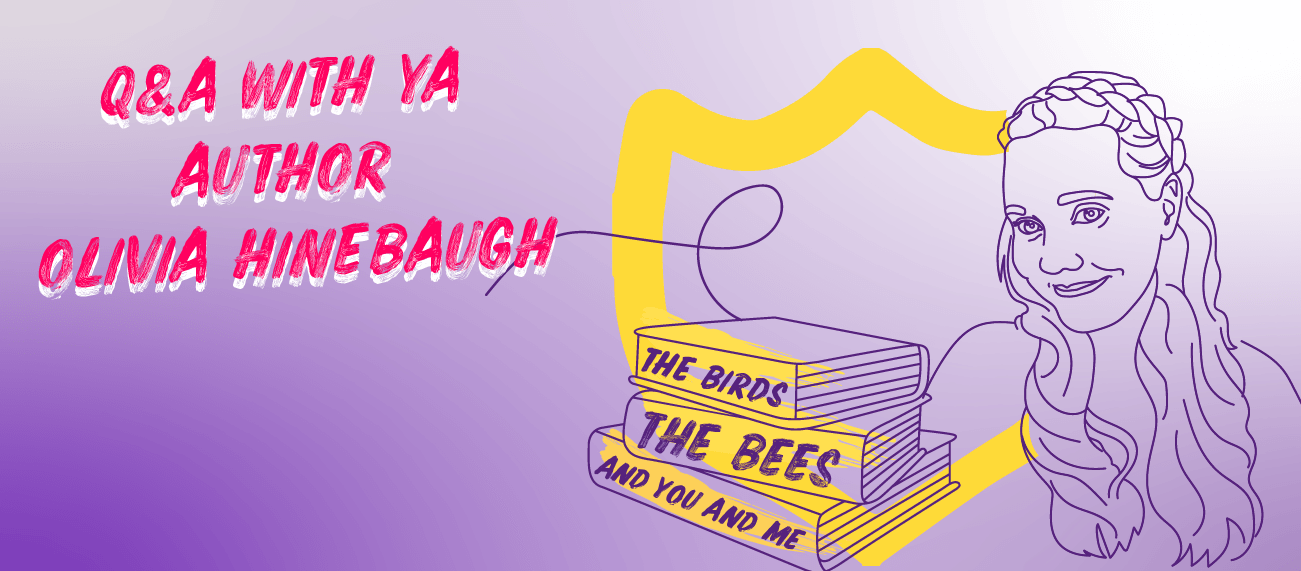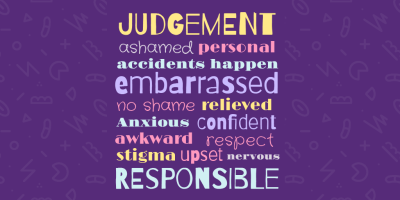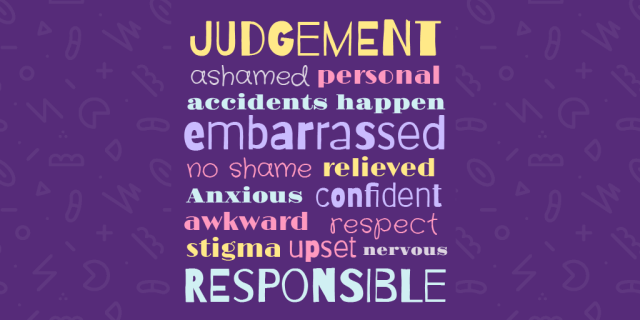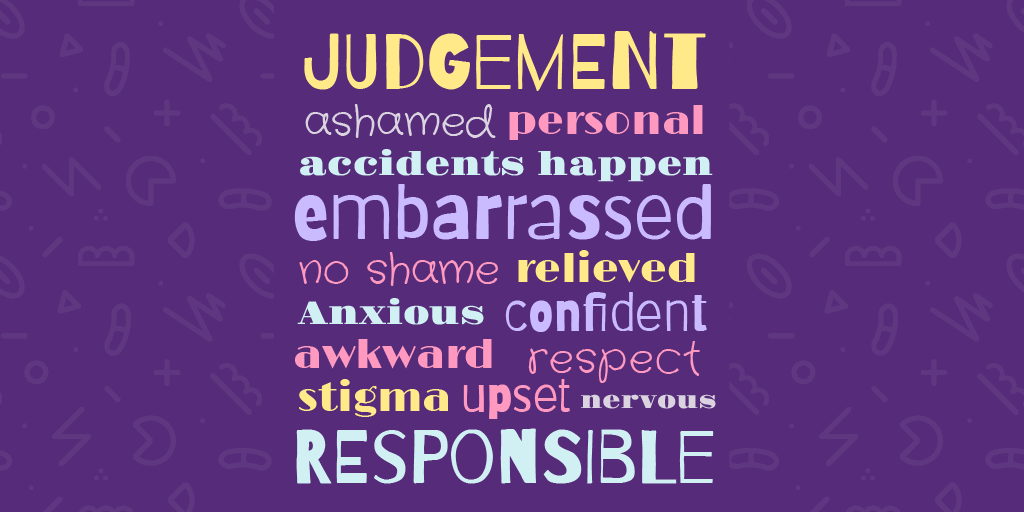What was your favourite book as a teenager? Did it prepare you for the adult world, or help you escape the realities of hormone-ridden adolescence?
Olivia Hinebaugh, an American mother of three and former doula- a trained non medical companion who offers comfort and support during labour, birth and postpartum – has written a young adult (YA) book called The Birds, The Bees, and You and Me.
Her book challenges the idea of abstinence-only education and instead offers an inclusive, sex-positive coming of age story. We spoke to Olivia about why she wrote her book and what she hopes it will achieve.
Could you tell me a bit about your book?
The Birds, The bees, and You and Me is about 17-year-old Lacey whose mum is a labour and delivery nurse, so she knows about birth, pregnancy and sexual health.
It isn’t until she meets up with an old friend who she discovers dropped out of school because she’s pregnant that she realises the abstinence-only sex education in her school isn’t great, so she starts providing sex ed advice, distributing condoms and all sorts of things to her classmates.
What is abstinence-only sex education?
It’s never introducing the idea of birth control or safer sex practices. It’s basically saying: ‘this is why you should wait till marriage, this is how you get pregnant, this is how you get diseases, so you just shouldn’t do it.’
The philosophy behind it is that some people believe if you give kids condoms they’re going to want to use them, which I’m pretty sure has been disproven.
Even when schools do talk about contraception, I don’t feel like it’s necessarily done in a way that empowers students to go out and procure condoms or makes them feel confident about how to get on birth control.
Is abstinence only sex education common in the US?
I think it is. I set the book in North Carolina in a small town, where it’s very realistic that abstinence-only education would happen.
I crowdsourced the worst things people saw in their own sex education classes. There’s a scene in my book where the teacher has a bunch of glasses of water and one of them has blue dye in it.
She mixes the glasses together, to stimulate sex as being the exchange of bodily fluids, and she shows that if the blue was an STI now everybody has it.
That is a demonstration people really use. In my book, the main character Lacey borrows a condom from a friend and says: ‘well look, if I put this condom over the cup then it doesn’t happen.’
I don’t know if you’ve heard of the chewing gum analogy? Elizabeth Smart, who was abducted as a teenager, was raised Mormon, very religious, and they had told her that if you have sex before marriage you’re like a chewed piece of gum and nobody is going to want to chew on you now.
She was raped by her captor and so she had a hard time coming to terms with the fact that she’s not a chewed piece of gum. She’s empowered to talk about that now, but that is the kind of thing that does happen in the US.
What was the inspiration for your book?
I wanted to write a story that teenagers could read that would show safer sex practices, but also consent and good, respectful relationships.
It was my interest in birth that started the idea. I wanted a teenage midwife who would essentially sneak around and deliver babies if people were hiding pregnancies, but that was not nearly as realistic.
Lacey starts off never having been kissed and she feels embarrassed about her lack of experience. Her best friend is asexual and they talk a lot about that. It’s just sort of encouraging open and honest discussions with your friends and sexual partners.
She does end up falling in love with her other best friend Theo and – spoiler alert! – they do end up having sex. They constantly check in with each other, there are discussions about safety and waiting for a yes before proceeding.
I really wanted that stuff to be in a YA book because it’s normally all or nothing. There are no in-between steps between kissing and having sex.
What do you want to achieve with your book?
I hope that kids are intrigued, pick it up and learn something. I’m always really happy when I see that it’s in libraries around the country, especially school libraries.
I just hope it starts discussions, empowers people and gives them a more realistic look at teenage sexuality.
How do you toe the line between being honest and being graphic?
There is an asexual character, so there’s an acknowledgement that not everybody is as interested in sex and that’s fine. Lacey does have sex by the end of the book, but she doesn’t in the beginning.
While she’s kind of embarrassed that she has no experience, she’s not just trying to find someone to have sex with. It’s something that comes up naturally in her relationship.
I just wanted to show that there are a lot of ways you can feel about sex, there are a lot of things you may be interested in or curious about and none of it’s bad. I don’t feel like my book should push kids in either direction.
What was your school sex education like?
It was fairly comprehensive in that they talked about STI prevention and contraception, but it still overemphasised abstinence. They didn’t really teach about the menstrual cycle or empower you to understand fertility.
Pleasure was not addressed and I don’t think we addressed sexual violence. There was no talk about what healthy communication looks like. It was not LGBTQ inclusive at all.
I remember we watched a video called ‘what if I’m gay’ and it was about these four boys who were all grappling with their sexuality. It was like ‘surprise, it wasn’t the quiet, soft, artistic boy that was gay, it was actually the super-tough masculine guy’. It was like ‘you’re either gay or you’re not’ and that was it.
It was just so stupid. It didn’t address all the ways you might feel about sexuality. They didn’t talk about bisexuality and I only learned about asexuality as an adult. They also didn’t talk about any sort of gender expression.
Do any of your characters have unprotected sex?
All of the ‘on screen’ sex between Lacey and her boyfriend is very safe, but there is another character, Alice, who gets pregnant. She didn’t feel empowered to insist on condoms.
They do talk about how embarrassing it is to go into the drug store and buy condoms. The thing is you shouldn’t be embarrassed because you’re making a really good, empowered decision.
What is life like for Alice as a 17-year-old mum?
She has pretty much written off her future at the beginning of the book. She dropped out of school because she was embarrassed.
It’s only because she’s adopted by this group of friends who treat her like a normal person even though she’s pregnant that she feels empowered to still go for the things she wants.
If there is still a stigma around buying condoms, do you think there is also stigma around the morning after pill?
Yeah, I think there definitely still is. I feel like people would be embarrassed to ask for the morning after pill because the assumption would be that they messed up.
Why shouldn’t people be embarrassed about taking the morning after pill?
Taking the morning after pill can be one of the best decisions you can make for yourself and for your future. It’s understandable that procuring and using the morning after pill is scary, but there’s so much reassurance in knowing you are doing what you need to help prevent an unplanned pregnancy.
The people who love and care for you should be supportive. Find these people among the adults and peers in your life. You never need to disclose this to people you don’t trust.
But oftentimes, reaching out is affirming and reassuring, and ultimately helps break down stigmas. Whatever your feelings are about this, they are valid. And hopefully, you can take a moment to be proud of yourself.
The Birds, The Bees, and You and Me will be available in January 2020.
